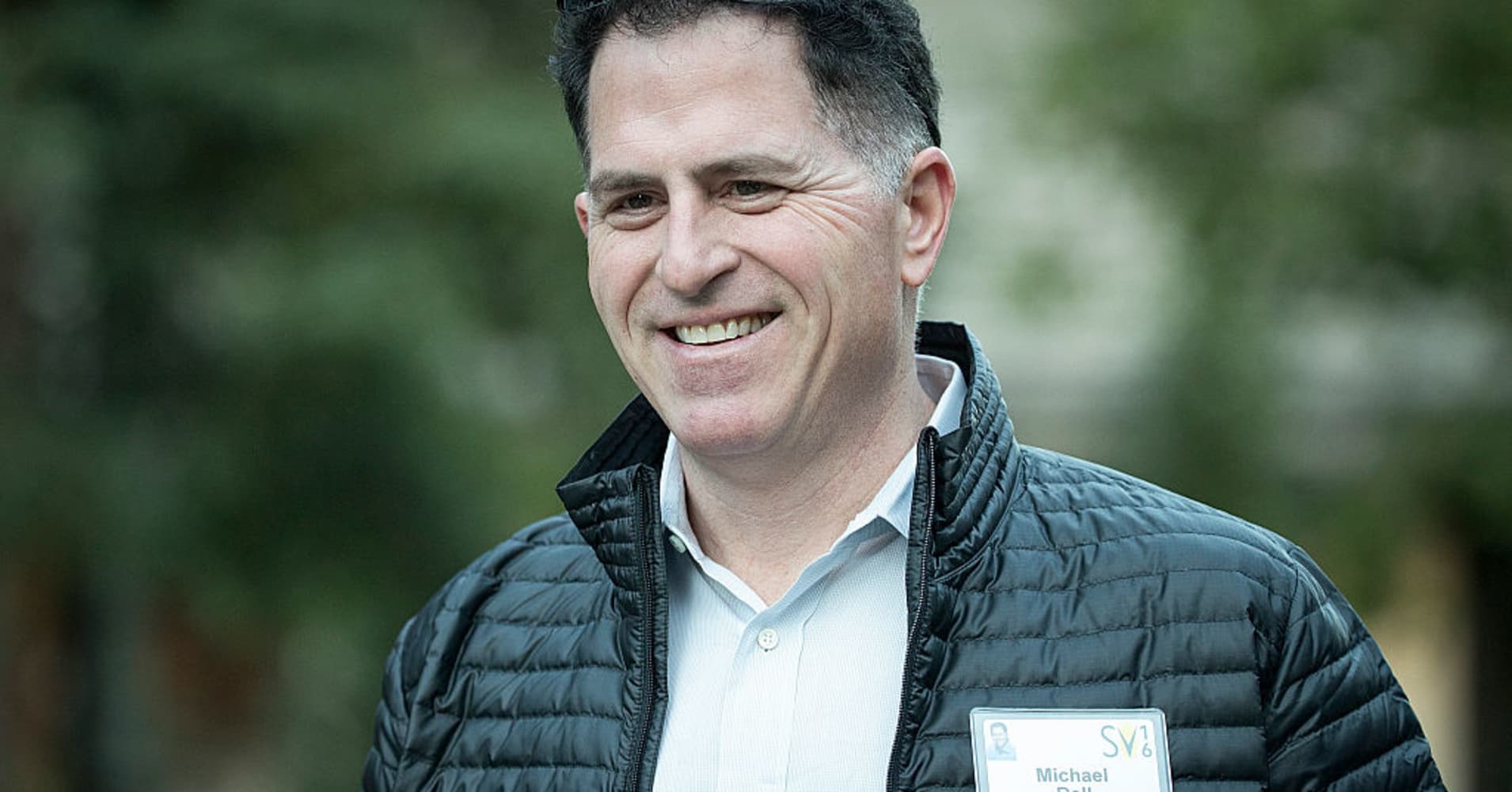Dell’s VMware deal may hinge on how the companies split up value from Dell’s tracking stock

Michael Dell is going to have to sell VMware on a deal to merge. Fortunately for him, he may have about $9 billion of found money to play with.
And getting the deal done may come down to how much of that he immediately transfers to VMware shareholders.
The “found money” would come from Dell’s tracking stock, DVMT, which trades at about a 40 percent discount to VMware for a variety of reasons, including having no voting rights. The tracking stock’s purpose is to mimic the performance of VMware within Dell, the closely held technology company owned by Michael Dell and private equity firm Silver Lake.
If DVMT is consolidated within Dell and VMware, the tracking discount will disappear, as all shareholders will own the same publicly traded stock. There are about 200 million outstanding shares of DVMT, each of which trades around $74. VMware shares trade at about $120. Erasing a discount would be the equivalent of more than $9 billion in new wealth.
Theoretically, that value could be transferred to VMware shareholders through a still-to-be-determined exchange ratio. And VMware’s special committee may demand most of it, given the company’s consternation over a deal.
VMware employees and shareholders have reacted with concern over a potential merger, especially as the company’s shares have slumped on several CNBC stories detailing news of a potential merger.
Dell hasn’t yet submitted a formal proposal to VMware’s special committee, according to people familiar with the matter. Dell is working with Bain & Company to get a perspective on a valuation for the company and an impartial assessment of synergies between the two companies. That is needed so VMware can fairly judge a merger, said the people, who asked not to be named because the discussions are private.
Dell, VMware and Bain declined to comment.
Still, the $9 billion, which could be split among DVMT, Dell and VMware shareholders via an exchange ratio, may need to be skewed toward VMware shareholders who are otherwise reluctant to approve a larger, more diversified combined company saddled with debt and lower-growth hardware.
Earlier this week, T. Rowe Price, the largest institutional VMware shareholder, said publicly it opposed a potential merger. T. Rowe owns about 12 percent of all outstanding class A shares.
Jericho Capital, which owns about 1.8 percent of outstanding shares, sent a letter to VMware’s board of directors earlier this month outlining other potential acquisitions for VMware that would keep the company on a higher growth trajectory.
Jericho also said a deal was “highly concerning” because it would use VMware’s cash to “go towards servicing Dell’s debt instead of towards share buybacks or strategic acquisitions.” Dell has about $52 billion in debt.
While some shareholders have complained, merging with Dell could make the new company more appealing to index funds and technology investors looking for large-cap bellwether investments.
A combined Dell-VMware would fuse Dell’s hardware with remaining aspects of EMC’s hybrid cloud solution and VMware’s virtualization software. Dell acquired EMC — and its 81 percent stake in VMware — for $67 billion in the largest pure technology deal in history in 2015.
If Dell can’t get a deal done with VMware, it may sell off other assets for liquidity or potentially pursue a reverse merger through DVMT, becoming a public entity that way, said two of the people. Pivotal Software filed its S-1 for an initial public offering today, which will give Dell proceeds to help pay off its debt. But the VMware deal is still option number one, the people said.
While DVMT and VMware shareholders aren’t guaranteed shareholder votes on a deal, the Dell and VMware special committees have the option to allow for them.


